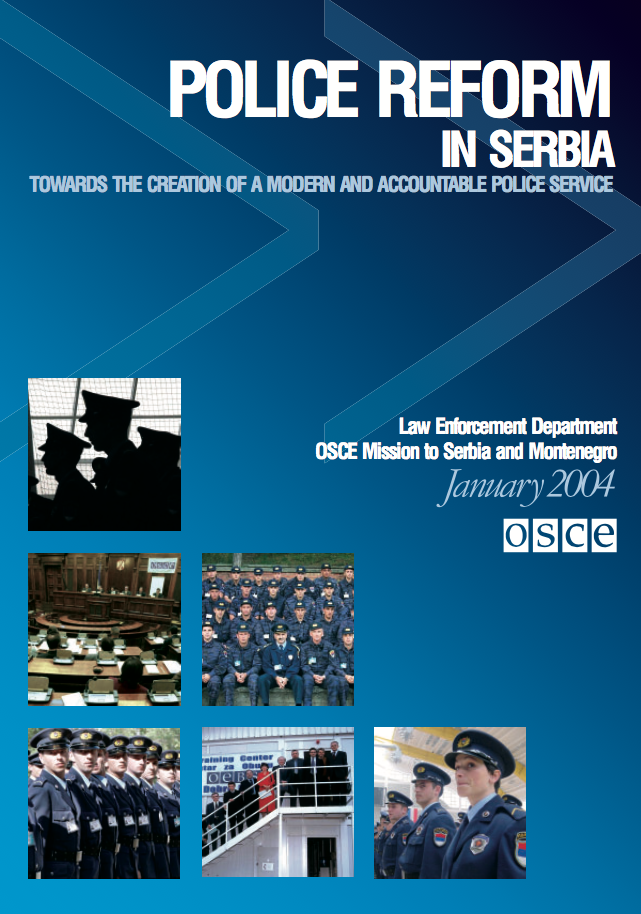Police Reform in Serbia: Towards a Modern and Accountable Police Service

Description
The main objectives of this report are to highlight areas where the police reform process in Serbia requires impetus and to be constructive by providing possible solutions to issues that have the potential to undermine the process.
Summary
The reform of the police service is crucial to the development of a stable democracy, the creation of an open market economy and the development of a political and social structure representative of the values and needs of society. The major task facing governments today is the concerted, co-ordinated and sophisticated actions of organised crime syndicates. Such activity takes advantage of disorientation during periods of transition to gain sway with political elements. This enables them to infiltrate the economy and to manipulate both the social and economic environment for financial gain. What must occur in tandem with the development of democratic institutions is the development of a police service with an ideological ability to objectively uphold the rule of law in a manner compliant with human rights norms. The police service cannot function effectively without the trust and assistance of the public. The police service for many, represents a litmus test for the change that is occurring in Serbian society. A cornerstone of democratic governance is the ability of the police service to objectively uphold the interests of society over the undue influence of criminals and criminal organisations. The correlation between the process of stabilisation within a transition society and the reform of the national police service should be acknowledged and therefore reform of the police service seen as a major priority for the Serbian government and the international community.
This document aims to evaluate the progress that has been made in the two years since the publication of the OSCE Study on Policing in FRY. Such progress relates to the strategy and implementation of reforms undertaken by the Serbian Ministry of Interior. The OSCE’s report can be viewed as the control from which progress in the reform process can be measured. It highlighted the areas in which the Ministry of Interior should concentrate to develop a thoroughly modern, representative and democratic police service. Written initially in 2001, the Ministry accepted the direction as proposed by the Monk Report and engaged in the process. Now, more than two years into the process it is both timely and necessary to re-evaluate progress and re-align priorities. Likewise, an evaluation of the international community’s engagement in this process, together with the OSCE strategy as the co-ordinator of international support, should be analysed.
This report aims to be practical rather than purely theoretical. It provides 93 clear recommendations for both the Ministry of Interior and the international community. These 93 recommendations should form the basis of discussions on the Ministry’s reform priorities for the next two years, and should represent the focus of international assistance over the same period. The Ministry must recognise that there exists a window of opportunity to benefit from the focus, attention and financial support of the international community. Such support is dependant on significant progress being made in the areas outlined in this document and on the development of a strategic and holistic approach being taken with regard to the police reform process.